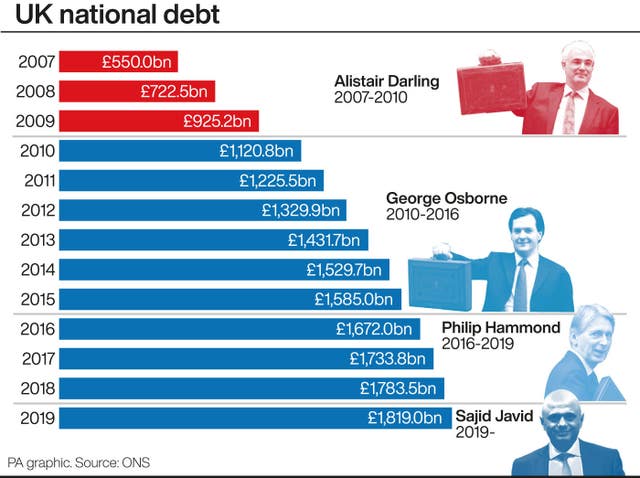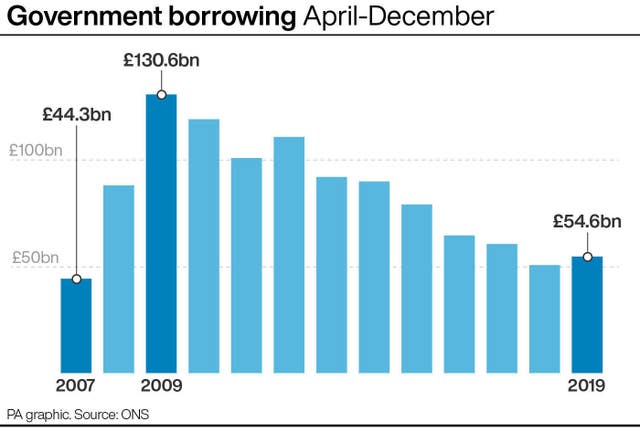
Britain’s budget deficit was less than expected in December, although borrowing is set to rise this year, according to the Office for National Statistics.
Public sector borrowing hit £4.8 billion last month, down £200 million on the same month a year ago, thanks to a boost in tax payments to central Government.
Receipts to the Government last month increased £2.2 billion to £62.2 billion, whilst total Government expenditure increased 2.7%, or £1.7 billion, to £63.9 billion.

The boost came primarily from increases in National Insurance contributions, along with taxes including VAT, tobacco and stamp duty, the ONS said.
Taxes on income and wealth fell slightly, but there was a £300 million increase in revenues from fuel.
Of the £63.9 billion spent by central Government, the vast majority, £60.2 billion, was spent on “day-to-day” activities, which was up 4.3% on a year ago.
The Government also borrowed £54.6 billion between April and December – up £4 billion, the ONS added.

Debt levels rose by £35.5 billion to £1.82 trillion, although as a ratio of debt to GDP, there was a fall of 0.9 percentage points, making debt 80.8% of GDP.
But with inflation falling over the past year, interest payments on the debt has fallen by £1.1 billion compared with last December.
The Government has made it clear it intends to increase public spending, and chancellor Sajid Javid will lay out his plans more fully at his first budget of the new parliament in March.

Enjoy the convenience of having The Sunday Post delivered as a digital ePaper straight to your smartphone, tablet or computer.
Subscribe for only £5.49 a month and enjoy all the benefits of the printed paper as a digital replica.
Subscribe